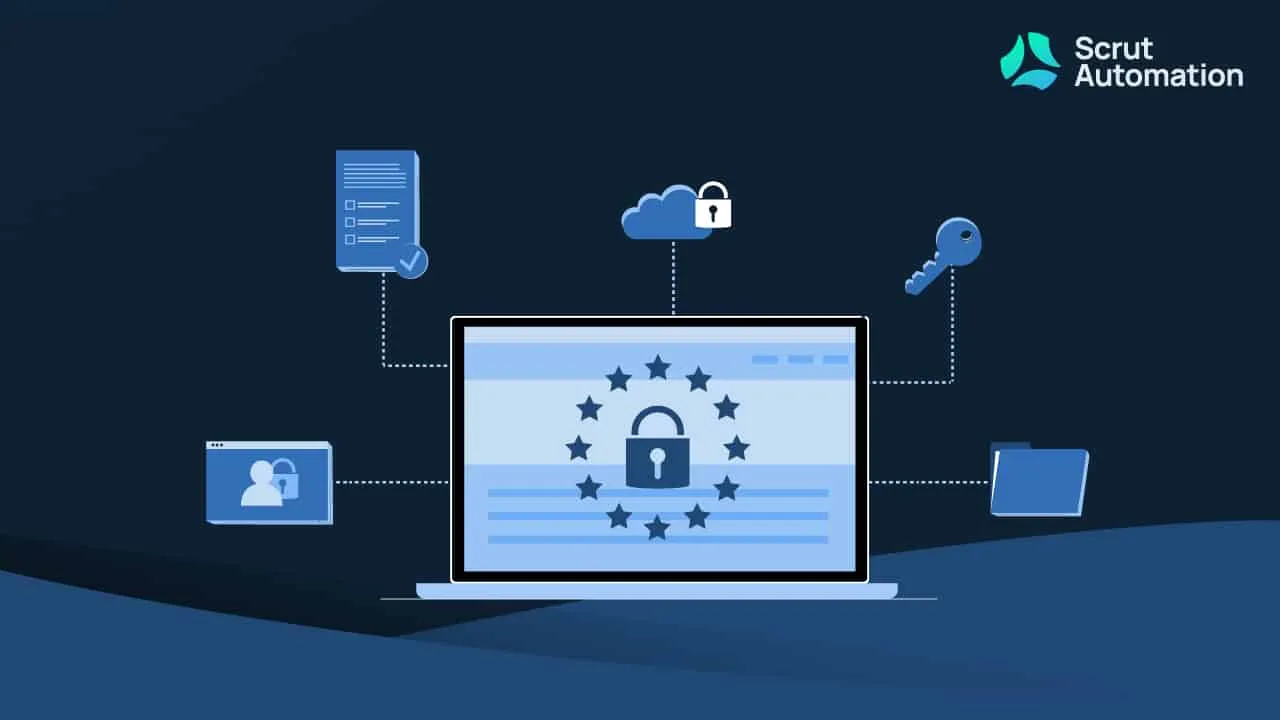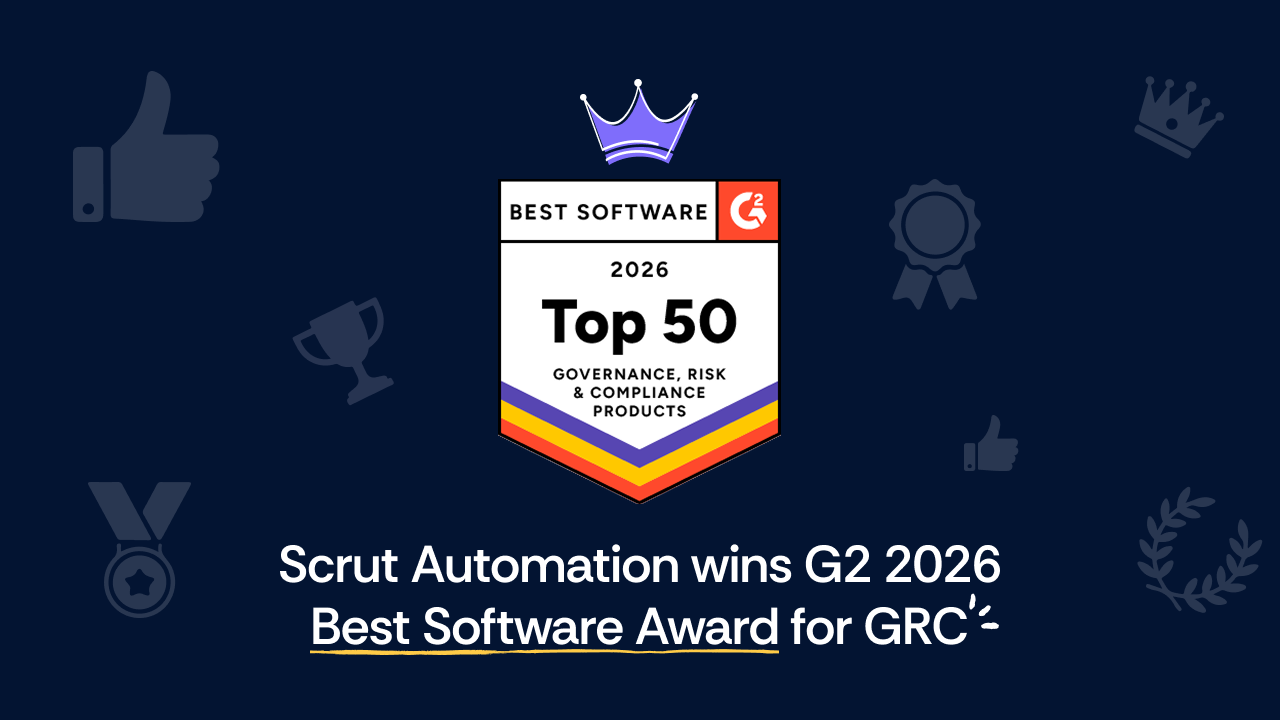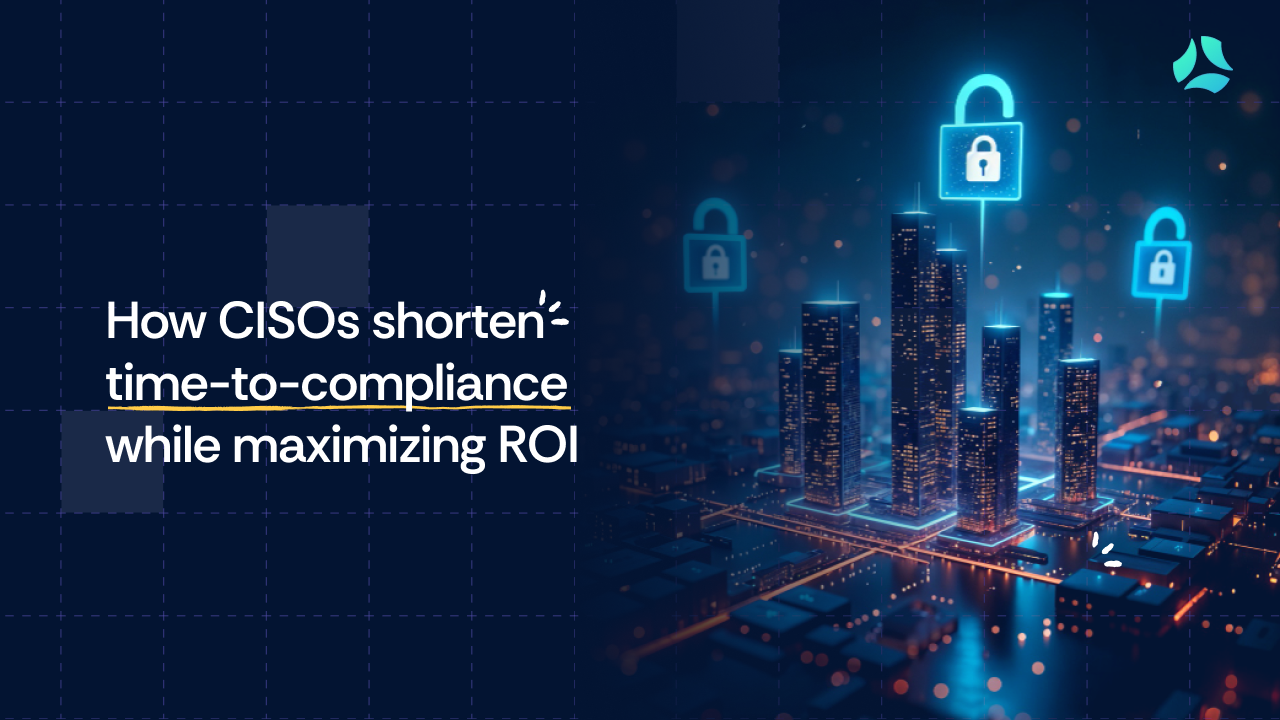Choose risk-first compliance that’s always on, built for you.
Go back to blogs
Advantages of information security for businesses
Last updated on
January 28, 2025
5
min. read

Cybercrime was expected to inflict $6 trillion worth of damages worldwide last year. If this was to be equated with GDP – cybercrime would be the world’s third-largest economy after the U.S. and China. Cybercrime costs globally are expected to reach a whopping $10.5 trillion by 2025, up from $3 trillion in just 10 years.
Let it sink in for a minute.
Needless to say, cybercrime has reached far and wide just as technology and the internet. Organisations across the world are establishing strong controls not just to be compliant – but also to safeguard their stakeholders, avoid business disruptions and protect their reputation. If you are a technology company building software – protecting the privacy, confidentiality, availability, and integrity of sensitive data is as important as building the product itself.
F500 companies such as Morgan Stanley, Yahoo, Google, Microsoft and Ikea are deeply inflicted with such threats and attacks. These companies have dedicated capability and capacity to manage information security – but are still struggling to keep themselves secure due to growing sophistication of cyber-criminals. This problem grows exponentially with smaller hyper growth startups, which lack such resources. Thus, focussing on robust information security operational procedures is the best mechanism to combat such threats.
What is information security?
Information security is a set of practices implemented to keep data secure from unauthorised access or alterations when the data is being stored and transmitted from one machine or application to another.
Advantages of information security
1. Protects sensitive information
In the tech-savvy world, sensitive data including but not limited to, company’s confidential information, customer, employee and vendor personal details, is stored and transmitted online. Goes without saying, this data is critical – and any data breach can result in significant reputational losses and breach of trust. Often times, this also results in real financial losses, through lost sales, fines and corrective actions.
2.Offers organisation-wide protection
It protects your entire organisation from technology-based risks and other, more common threats, such as poorly informed staff or ineffective procedures.
3. Reduces the risks of remote work
The COVID 19 pandemic has evolved the way we work, with companies experimenting with different forms of work environments – Remote, flex-work, distributed and hybrid work models replacing the traditional work from office models.This has increased the threat of leakage of sensitive information and the expanded the risk perimeter of businesses tremendously. Investing in a good Infosec solution protects your company from potential security threats and assesses where your business ranks in terms of cyber resilience, enabling you to take proactive steps for remediation.
4. Infosec policies keep you away from penalties and fines
Do you know, Uber alone has 600,000 drivers and 57 million user accounts breached? And it was fined $148 Million for violating state data breach laws. It was the biggest data-breach fine in history at the time.
American and European countries have implemented regulations to protect their citizens’ personal data. Any company violating these regulations can lead to substantial fines and penalties. Below are a few examples, and the extent of these penalties:
Health Insurance Portability and Accountability Act (HIPAA) was legislated in the United States in 1996 and imposed several regulations on companies in the healthcare sector that handles patient data. It is the duty of all institutions handling healthcare data in America to protect the information gathered in compliance with HIPAA. Institutions that failed to comply are fined between $100 to $1.5M a year.
General Data Protection Act (GDPR) applies to all businesses that handle people’s personal data residing in the European Union (EU). GDPR was designed to protect European citizens from data breaches. Companies that failed to comply are fined up to €20 million (roughly $20,372,000), or 4% of worldwide turnover for the preceding financial year – whichever is higher.
Payment Card Industry Data Security Standard (PCI-DSS) applies to all companies that handle credit card information. The PCI Security Standards Council, an agency established by Visa, Mastercard, and other payment companies, administers and enforces this regulation. Retailers who failed to comply with PCI-DSS are fined between $5,000 to $100,00 a month.
Conclusion
In short, robust infosecurity posture is critical due to 4 key reasons:
It helps protect sensitive data
Infosec policies prioritise protecting intellectual property and sensitive data such as personally identifiable information (PII) of key stakeholders, company operational data, customer sales data etc
It enables proactive risk management
Effective infosec policies help identify risks to information from the perspective of security, availability, integrity, confidentiality, and privacy. Maintaining an effective risk register can help a company in making calculated decisions on risks they want to avoid, mitigate or manage, based on the likelihood of risk actually materializing and the severity of the impact of such a risk.
It builds trust with customers and other stakeholders
Infosec policies summarise the organisation’s security posture and explain how it protects IT resources and assets. This is critical in building trust with customers, employees, vendors and others alike that the company is reliable and is capable of managing their sensitive information and confidential processes.
It helps avoid unnecessary compliance penalties
Having a good infosec posture managed internally, validated with controls of the local infosec regulations – will help in avoiding such hefty fines which can go from several hundred to several million dollars.
Scrut Automation is an innovative and radically simple governance, risk, and compliance automation platform for growing startups and mid-market enterprises. With Scrut, compliance teams can reduce ~70% of their manual effort in continuously maintaining compliance towards SOC 2, ISO 27001, GDPR, PCI DSS, HIPAA, and CCPA. Schedule your demo today to see how it works.
Table of contents


















